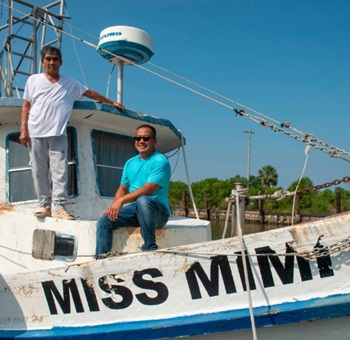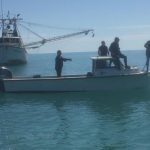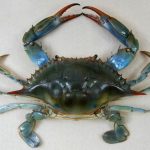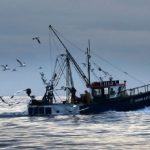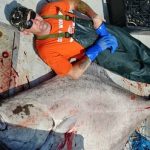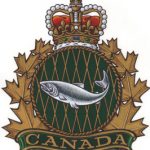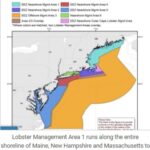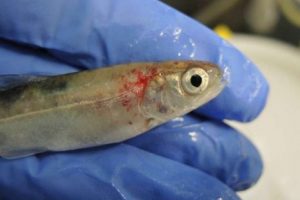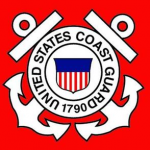Tag Archives: Imported seafood
New Orleans shrimp festival passes genetic test confirming Gulf Coast origin
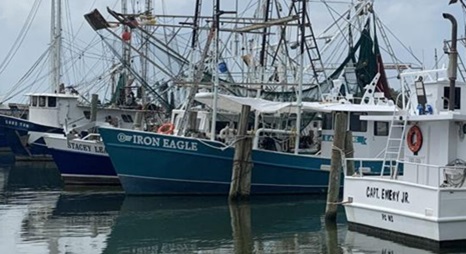 Recent genetic tests have revealed that two major Southern seafood festivals served imported, farm-raised shrimp instead of the Gulf-caught varieties they advertised, sparking concerns among local commercial fishermen and seafood advocates. SEAD Consulting, at the request of regional shrimpers, used its RIGHTTest genetic testing technology to identify the origins of shrimp labeled as Gulf-caught at these events. Results showed widespread mislabeling at both the Louisiana Shrimp & Petroleum Festival in Morgan City and the National Shrimp Festival in Gulf Shores, Ala. Not all festivals failed the test, however. At the Louisiana Shrimp Festival & Shrimp Aid in New Orleans, which was also tested, every vendor passed the RIGHTTest, proving that all shrimp served at this event was authentic, wild-caught Gulf shrimp. more, >>CLICK TO READ<< 09:48
Recent genetic tests have revealed that two major Southern seafood festivals served imported, farm-raised shrimp instead of the Gulf-caught varieties they advertised, sparking concerns among local commercial fishermen and seafood advocates. SEAD Consulting, at the request of regional shrimpers, used its RIGHTTest genetic testing technology to identify the origins of shrimp labeled as Gulf-caught at these events. Results showed widespread mislabeling at both the Louisiana Shrimp & Petroleum Festival in Morgan City and the National Shrimp Festival in Gulf Shores, Ala. Not all festivals failed the test, however. At the Louisiana Shrimp Festival & Shrimp Aid in New Orleans, which was also tested, every vendor passed the RIGHTTest, proving that all shrimp served at this event was authentic, wild-caught Gulf shrimp. more, >>CLICK TO READ<< 09:48
Louisiana lawmaker grills Shrimp & Petroleum Festival for selling imported shrimp
 A state lawmaker has issued a scathing rebuke of what she characterized as an embarrassing and “misleading” response from the Louisiana Shrimp & Petroleum Festival after the Illuminator reported that multiple vendors sold imported shrimp at this year’s event. State Rep. Jessica Domangue, R-Houma, wrote an open letter to festival organizers that she posted Thursday on Facebook. “Growing up in St. Mary Parish in a family of generations of commercial shrimpers, I was appalled to learn of the widespread selling of imported shrimp at the Louisiana Shrimp & Petroleum Festival,” Domangue wrote. “I found the festival’s official response in an October 1 press release to be an embarrassment.” The testing was performed at the five-day festival over the Labor Day weekend by Sea D Consulting, a food safety technology company that recently developed a rapid seafood species identification test in collaboration with Florida State University microbiologist Prashant Singh. more, >>CLICK TO READ<< 12:32
A state lawmaker has issued a scathing rebuke of what she characterized as an embarrassing and “misleading” response from the Louisiana Shrimp & Petroleum Festival after the Illuminator reported that multiple vendors sold imported shrimp at this year’s event. State Rep. Jessica Domangue, R-Houma, wrote an open letter to festival organizers that she posted Thursday on Facebook. “Growing up in St. Mary Parish in a family of generations of commercial shrimpers, I was appalled to learn of the widespread selling of imported shrimp at the Louisiana Shrimp & Petroleum Festival,” Domangue wrote. “I found the festival’s official response in an October 1 press release to be an embarrassment.” The testing was performed at the five-day festival over the Labor Day weekend by Sea D Consulting, a food safety technology company that recently developed a rapid seafood species identification test in collaboration with Florida State University microbiologist Prashant Singh. more, >>CLICK TO READ<< 12:32
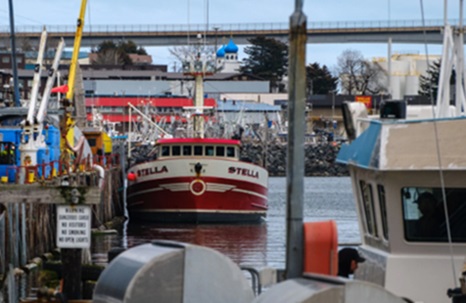
The seafood industry is in trouble. Processors and policy makers blame Russia.
Alaska waters produce the most seafood in the country, and many of the state’s coastal communities depend on commercial fisheries to sustain their economy. But Alaska’s fisheries are facing a massive economic slump right now and policymakers are increasingly blaming flooded global markets. The private sector and federal policymakers are teaming up to try to stop the bleeding. Last year was brutal on the seafood industry. Processing companies and fishermen alike suffered amid cratering prices, and they blamed Russia for flooding markets. Republican U.S. Sen. Dan Sullivan, from Alaska, pointed his finger at the country at a news conference on May 23. “Russians have essentially admitted they’re not just at war in Ukraine, they’re at war with the American fishing industry,” he said. more, >>CLICK TO READ<< 16:03
Senator John Kennedy works to bring Louisiana shrimping industry back to life
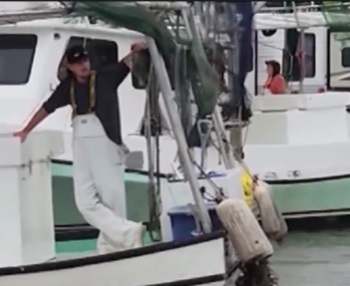 The $36 million purchase from the United States Department of Agriculture (USDA) of the Louisiana shrimping industry was done to help alleviate some of the issues the industry has been struggling with for years. United States Senator John Kennedy (R- La) says although he applauds the purchase, more still needs to be done to save the industry. Acy Cooper with the Louisiana Shrimp Association agrees with the senator the purchase does help, but additional assistance is needed to save one of Louisiana’s biggest industries. Video, more, >>click to read<<12:41
The $36 million purchase from the United States Department of Agriculture (USDA) of the Louisiana shrimping industry was done to help alleviate some of the issues the industry has been struggling with for years. United States Senator John Kennedy (R- La) says although he applauds the purchase, more still needs to be done to save the industry. Acy Cooper with the Louisiana Shrimp Association agrees with the senator the purchase does help, but additional assistance is needed to save one of Louisiana’s biggest industries. Video, more, >>click to read<<12:41
Beaufort leaders ask Gov. McMaster to declare economic disaster to help shrimping industry
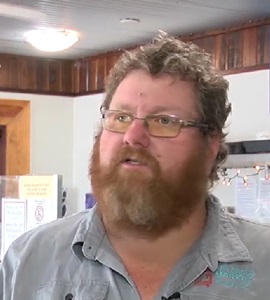 This all comes after local shrimper Craig Reaves sent this letter to city council explaining how shrimp dumping threatens his livelihood, and that of many others. In his letter to council, Reaves says that ‘all commercial fishing families have been decimated.’ He lists multiple reasons for said decimation but says that import dumping is the lead cause. For context, shrimp dumping is when farmed shrimp from other countries is sold to U.S. retailers and restaurants for below the market price that local shrimpers adhere to. Beaufort officials recognize the issue. “You can’t have locally owned operated seafood companies if the market price is going to be debased by this amount of flooded shrimp that’s coming in,” said Beaufort’s Acting Mayor Michael McFee. Video, more, >>click to read<< 08:40
This all comes after local shrimper Craig Reaves sent this letter to city council explaining how shrimp dumping threatens his livelihood, and that of many others. In his letter to council, Reaves says that ‘all commercial fishing families have been decimated.’ He lists multiple reasons for said decimation but says that import dumping is the lead cause. For context, shrimp dumping is when farmed shrimp from other countries is sold to U.S. retailers and restaurants for below the market price that local shrimpers adhere to. Beaufort officials recognize the issue. “You can’t have locally owned operated seafood companies if the market price is going to be debased by this amount of flooded shrimp that’s coming in,” said Beaufort’s Acting Mayor Michael McFee. Video, more, >>click to read<< 08:40
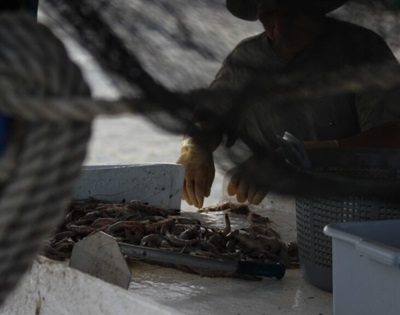
That ‘Gulf’ shrimp you ate probably wasn’t from the Gulf of Mexico
What if every imported seafood product for sale in Louisiana had a red sticker with the word “Imported” affixed to the front of its packaging? That question is one of several the state Seafood Safety Task Force is asking in an effort to address a struggling domestic fishery and increasing health risks from imported catch. The task force met Friday for just the second time in over a decade following a long dormant period that ended last month. State Sen. Fred Mills, R-St. Martinville, chairs the task force that he said will try to develop solutions to address three areas: the health and safety of consumers, the economy of the domestic seafood sector, and consumer education. An influx of cheap foreign catch has flooded the seafood market in Louisiana, and most restaurants in the state choose to serve imported shrimp and crawfish to patrons who are either oblivious to it or mistakenly believe they’re eating local fare, according to the Louisiana Shrimp Association. The effects have decimated a local industry and unique Louisiana culture while also potentially introducing harmful contaminants into the food supply. >>click to read<< 11:52
Petition: Stop Imported Seafood, Save Our Local Fishermen and Seafood Industry!
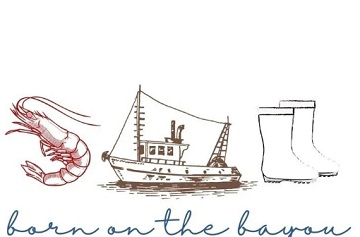 As a concerned citizen, I am deeply troubled by the detrimental impact of imported foreign seafood on our local fishermen and seafood industry. It is disheartening to witness the decline in our local seafood prices and the subsequent struggles faced by our hardworking fishermen. This petition aims to raise awareness about this issue and urge relevant authorities to take immediate action. Growing imports of foreign seafood have flooded our markets, causing a significant drop in demand for locally caught fish. This has resulted in devastating consequences for our local fishermen who rely on their catch as their primary source of income. In the 1980s, shrimpers were receiving close to $7 per pound at the dock; however, today they are barely earning $.80 per pound. >>click to read and sign the petition<< 10:41
As a concerned citizen, I am deeply troubled by the detrimental impact of imported foreign seafood on our local fishermen and seafood industry. It is disheartening to witness the decline in our local seafood prices and the subsequent struggles faced by our hardworking fishermen. This petition aims to raise awareness about this issue and urge relevant authorities to take immediate action. Growing imports of foreign seafood have flooded our markets, causing a significant drop in demand for locally caught fish. This has resulted in devastating consequences for our local fishermen who rely on their catch as their primary source of income. In the 1980s, shrimpers were receiving close to $7 per pound at the dock; however, today they are barely earning $.80 per pound. >>click to read and sign the petition<< 10:41
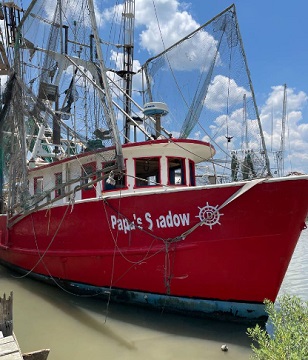
What you should know about The Shrimpocalypse, the wipeout of a time-honored US industry
On the inviting, teal-colored water in the shipping channels off the coast of southern Louisiana, Phillip “Rooster” Dyson pilots his bright red shrimp boat named Papa’s Shadow through a landscape he no longer recognizes. His practiced gaze sweeps over the water, but very little remains of the small fishing community of Cameron, where he has lived all his 40 years. The rickety wooden social clubs, bars, homes, and colorful shrimping boats are gone, most of it replaced by giant liquid natural gas terminals, and many more are planned for Louisiana’s fragile coast. “It costs $400 just to take the boat out,” he said in his strong Southern Creole accent, adding that July can often be a slow month for shrimp. One of his most recent catches in mid-July brought in a measly $200, to be shared between himself and the two men that work on his boat. Dyson has eight kids, while his employees also have families. Photo gallery, >click to read< 11:47
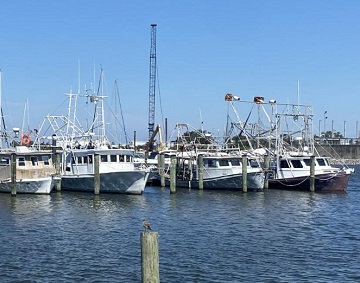
New Orleans fishing industry suffers sourcing issues
Fishing runs through Merlin Schaeffer’s blood. He has been fishing in Louisiana waters for decades, and before him, so were his father and his grandfather. While primarily a fisherman in Lake Pontchartrain, Schaeffer is also the owner of Schaeffer’s Seafood. Located in Bucktown, a small community that thrives on the fishing industry, Schaeffer’s is a shop that sells anything from crabs to shrimp to catfish. Because fishing is a touch-and-go job, fishermen often lack routine and certainty when they head out to work, he said. “You gotta go with the flow, around the weather, the bite, the tide, it goes off a lot, the sails,” Schaeffer said. “Everything varies.” This variance includes prices as well. >click to read< 11:30
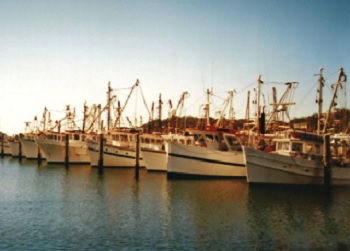
Something Fishy: Local seafood is first class. So, what has changed?
It was in 1983 that there were around 23 trawlers working to full capacity returning to port, day after day, with excellent catches of fish and prawns. Today the local fleet numbers three boats with a return far reduced from earlier years. So, what has changed? The introduction of the Marine Park reduced the area which could be fished. The cost of diesel increased along with the wages of crewmen. One of the biggest changes has been the introduction of farmed seafood and the importation of overseas product. The remaining trawlermen continue to work hard in difficult conditions. >click to read< 12:36

Believe it or not, now is your time
Greetings Shrimpers of the South, and commercial fishermen across the nation. My name is Ed Blaine, and in light of the Coronavirus mayhem we’re all experiencing, believe it or not, now is your time. I’ve been talking to Shrimpers, and the imports of shrimp from foreign sources have stopped. This is an opportunity to take advantage of, and not ignore the fact that 92% of the seafood consumed in this country is imported from overseas, and we have a chance to fix that. Prices are up for your domestic product, as the availability of that cheap, inferior, imported stuff has dried up. >click to read< 15:12
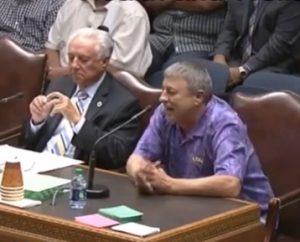
This! A Cajun protest for genuine Louisiana seafood- WATCH!
Dean Blanchard is a well known shrimper from Grand Isle. He paid a visit to the State Capitol on Wednesday. He wants the House to HB 335. It would mandate that restaurants display signage disclosing whether their crawfish or shrimp came from a country outside the United States. “What we have here is the restaurants are really committing fraud on their customers,” Blanchard said in the Health and Welfare Committee meeting. “Look on the wall, there’s pictures of shrimp boats, pictures of our Cajun culture. I’m required to label everything I put out. The store is required to label everything they sell you. Why isn’t the restaurant required to,,, >Video, Click to watch< 16:06
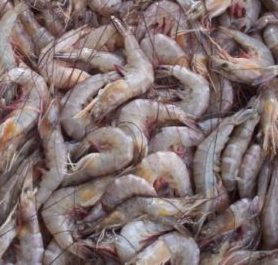
Lawmakers urge more FDA inspections of imported seafood, win approval
An effort to increase the amount of imported seafood the U.S. inspects for health issues has crossed a hurdle in the Senate. Louisiana’s two Republican senators, John Kennedy and Bill Cassidy, won approval of a measure that would add $3.1 million the FDA’s budget for such testing. Shrimpers in Terrebonne and Lafourche, joined by their peers in other states, have pushed for the measure,, The group represents shrimp fishermen and processors in Louisiana, Alabama, Florida, Georgia, Mississippi, North Carolina, South Carolina and Texas. Video >click to read<17:48
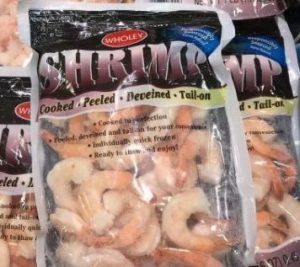
Say “No” to Slave Shrimp
The Thanksgiving-Xmas-NYE season, at our house as at many others, is marked by several traditional holiday foods, including shrimp. To procure the shrimp, we usually try to find the best price; shrimp, once a luxury good, now seems pretty much a commodity product. We used to buy shrimp based largely on cost. Lately, however, we’re scrutinizing labels more carefully and digging a little deeper in our pockets. click here to read the story 08:48
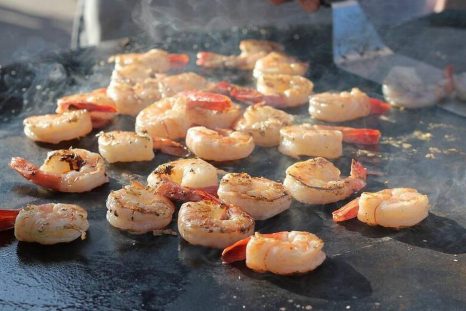
Report: Imported seafood often contains dangerous drugs
In 2015, about 90 percent of seafood consumed in the U.S. was imported from overseas, and about half of that comes from fish farms, according to the National Oceanic and Atmospheric Administration. The recent analysis released by the U.S. General Accountability Office found that some fish imported from other countries, including China, India and Vietnam, contain high levels of drug residue, yet few samples are ever tested. click here to read the story 12:04
Outer Banks Catch pulls out of Seafood Fest – the public is being misled
 Citing concerns over the lack of local seafood served at the Outer Banks Seafood Festival, Outer Banks Catch (OBC) has chosen not to participate in this year’s event, scheduled for Oct. 15. A letter from OBC Executive Director Sandy Semans Ross stated that, “This action is not being taken lightly,” adding that the event’s advertising has “indicated that local seafood is the fare of the day at the event. Most of it is not; the public is being misled.” “The biggest point of contention…was the fact that the seafood festival doesn’t serve one hundred percent locally caught seafood,, Read the rest here 13:34
Citing concerns over the lack of local seafood served at the Outer Banks Seafood Festival, Outer Banks Catch (OBC) has chosen not to participate in this year’s event, scheduled for Oct. 15. A letter from OBC Executive Director Sandy Semans Ross stated that, “This action is not being taken lightly,” adding that the event’s advertising has “indicated that local seafood is the fare of the day at the event. Most of it is not; the public is being misled.” “The biggest point of contention…was the fact that the seafood festival doesn’t serve one hundred percent locally caught seafood,, Read the rest here 13:34
Video: Has America lost control of its seafood?
 Despite having some of the longest coastlines of any country in the world, the United States imports 90% of the fish and seafood it eats. Watch the video here 10:36
Despite having some of the longest coastlines of any country in the world, the United States imports 90% of the fish and seafood it eats. Watch the video here 10:36
5 reasons why slaves still catch your seafood
 BANGKOK — Seafaring slave ships didn’t vanish in the 19th century. They still persist. And there’s a good chance they’re catching your dinner. Heads up: reason #5 is your fault. Read more here 10:03
BANGKOK — Seafaring slave ships didn’t vanish in the 19th century. They still persist. And there’s a good chance they’re catching your dinner. Heads up: reason #5 is your fault. Read more here 10:03
Imported seafood? Will North Carolina’s commercial fishermen benefit?
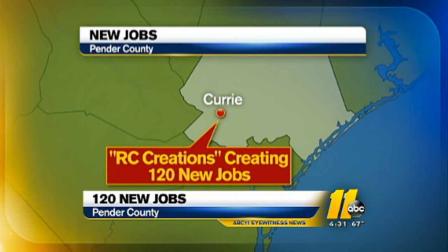 Gov. Pat McCrory and N.C. Department of Commerce Secretary Sharon Decker are tone deaf. They took great pleasure in announcing in a press release Friday that RC Creations LLC, a seafood processing company, would establish a facility in Pender County to import fresh and frozen seafood from around the world (read foreign seafood from Southeast Asia) to create ready-to-eat packaged seafood products that it will ship domestically and internationally. more@carolinacoast 16:00
Gov. Pat McCrory and N.C. Department of Commerce Secretary Sharon Decker are tone deaf. They took great pleasure in announcing in a press release Friday that RC Creations LLC, a seafood processing company, would establish a facility in Pender County to import fresh and frozen seafood from around the world (read foreign seafood from Southeast Asia) to create ready-to-eat packaged seafood products that it will ship domestically and internationally. more@carolinacoast 16:00






